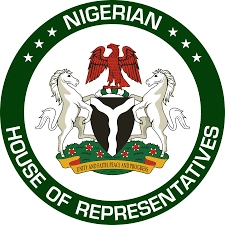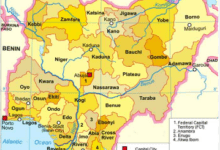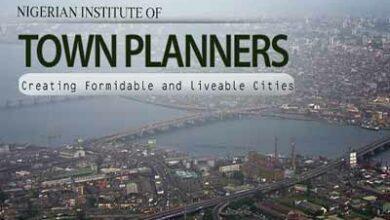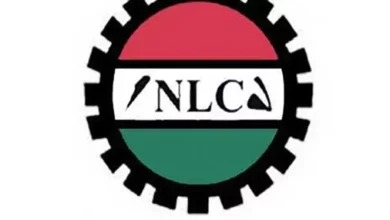5 Functions Of The Nigerian House Of Representatives
There is a National Assembly for the Federal Republic of Nigeria. This is the law making body for the Federal Republic of Nigeria.
Two houses make up the National Assembly, the Senate and the House of Representatives. Section 47 of the 1999 Constitution provides that ‘There shall be a National Assembly for the Federation which shall consist of a Senate and a House of Representatives’.
👉 Relocate to Canada Today!
Live, Study and Work in Canada. No Payment is Required! Hurry Now click here to Apply >> Immigrate to CanadaThe House of Representatives is the lower chamber of the National assembly. Section 49 of the 1999 Constitution provides that ‘Subject to the provisions of this Constitution, the House of Representatives shall consist of three hundred and sixty members representing constituencies of nearly equal population as far as possible, provided that no constituency shall fall within more than one State’.
Read Also: Functions of the Federal Government of Nigeria

The present house of representatives was inaugurated on the 6th of June, 2015 with Yakubu Dogara as the speaker and Yusuf Sulaiman Lasun as the deputy speaker.
The primary function of the House of Representatives is law making, there are some other powers and functions ascribed to the house.
1. Law Making
This is the chief function of the house of representatives as an arm of the National Assembly.
Section 58(1) of the 1999 Constitution provides that ” The power of the National Assembly to make laws shall be exercised by bills passed by both the Senate and the House of Representatives and, except as otherwise provided by subsection (5) of this section, assented to by the President.”
There are two chambers of the National Assembly and they are are both actively involved in the process of law making. Generally, a law is made through the the passage of Bill.
A bill is a law in embryo or a potential law that needs to be passed by a law making body. In the case of of Nigeria, two the bodies are the Nigerian Senate and the House of Representatives.
👉 Relocate to Canada Today!
Live, Study and Work in Canada. No Payment is Required! Hurry Now click here to Apply >> Immigrate to CanadaRead Also: 10 Problems of Legislature in Nigeria and Possible Solutions
When a bill originates in any of the houses it is sent to the other house and to be passed. It should be noted that a bill does not become a law until it has been passed by the two chambers before a bill becomes a law, it passes soon through some stages.
The first is 1st reading where the bill is introduced to the house, after the 1st reading is the 2nd reading where further deliberations are made and the purpose of the bill is made known to the house.
A committee is set up for more discussions with and adjustments are made if necessary, the committee meets and reports to the whole house and the bill enters the third reading.
The bill thus far passes if it is supported by a simple majority of the members. If the bill so passes, it is sent to the other house to be passed. If the bill passes in the other house, it is presented to the president for assent.
Within thirty days, the president is required to notify whether he assents or not. The bill becomes a law once the president of assents. If the president of withholds his assent, the National Assembly and may pass the bill by a two-third majority.
2. Correction of defects in Law/Amendment
Besides the function of law making, there the House of Representatives is is also actively involved in the process of amending defects in law to meet modern day realities.
Recently, some amendments were made to the 1999 Constitution to enable younger people occupy political and positions. In a similar manner, some amendments were to the Companies and Allied Matters Act, 2004.
Read Also: 6 Functions of the Nigerian Senate
3. Control of Public Funds
The House of Representatives as an arm of the National Assembly exercise some level of control over the Nation’s public funds.
Section 81(1) of the 1999 Constitution provides thus ‘ The President shall cause to be prepared and laid before each House of the National Assembly at any time in each financial year estimates of the revenues and expenditure of the Federation for the next following financial year.’
The financial estimates is popular referred to as budget and it is being authorised by an Appropriation Act. Section 80(4) of the 1999 Constitution provides that ‘No moneys shall be withdrawn from the Consolidated Revenue Fund or any other public fund of the Federation, except in the manner prescribed by the National Assembly.’
4. The Power of Investigation
Th provisions of section 88 of the 1999 Constitution empowers the House of Representatives as an arm of the National Assembly to direct or cause to be , investigation on some matters.
This section provides that (1) Subject to the provisions of this Constitution, each House of the National Assembly shall have power by resolution published in its journal or in the Official Gazette of the Government of the Federation to direct or cause to be directed investigation into:
a. Any matter or thing with respect to which it has power to make laws, and
b. The conduct of affairs of any person, authority, ministry or government department charged, or intended to be charged, with the duty of or responsibility for –
i. Executing or administering laws enacted by National Assembly, and
ii. Disbursing or administering moneys appropriated or to be appropriated by the National Assembly.
It should be noted among that thus power can only be exercised for the purpose of law making, exposing corruption, inefficiency or waste in the administration on laws within the legislative competence of the National Assembly and funds authorised by it.
In the exercise of this power, the National Assembly is vested with the power to procure evidence to summon any person to give evidence and issue a warrant to compel the attendance of any person who had be summoned but fails to attend. (Section 89(1) of the 1999 Constitution).
Read Also: Buhari approves financial autonomy for state judiciaries, houses of assembly
5. Removal of President or Vice President
The House of Representatives as an arm of the National Assembly has a role to play in the removal of the president or vice president, the process of the removal is basically constitutional. This process is contained in section 143 of the 1999 Constitution.
The removsl of the preident or vice president starts with the notice of allegation in writing that the president or vice president is guilty of gross misconduct signed by at least one third of the members of the National Assembly.
Within seven days, the president of the senate shall make copies of the allegation to be served on every member of the National Assembly.
After the notice has been served, each house of the National Assembly shall by motion resolve whether the allegation should be investigated.
This should be done within fourteen days. The motion will be sustained if it is supported by two-thirds majority of the members of the National Assembly.
If the motion is passed, the president of the senate shall request the Chief Justice to appoint a panel of seven persons of unquestionable integrity, not members of the public service, legislative house or any political party to investigate the allegation.
The panel shall within three months report to each house of the National Assembly whether the allegation has been proved. If the panel reports that the allegation has not been proved.
The process comes to an end. If otherwise, within fourteen days, the National Assembly shall adopt the report of the committee by a resolution of not less than two-thirds of the members of the National Assembly.
If the motion is supported by the two-thirds majority, the President or vice-president in question stands removed from office.
These are the basic functions of the House of Representatives as an arm of the National Assembly as vested on it by the 1999 Constitution.
Read Also: 10 Problems of Nigerian Politics and Possible Solutions
The House of Representatives the lower chamber of the National Assembly is actively involved in the law making process and smooth running of the Nigerian governance.





